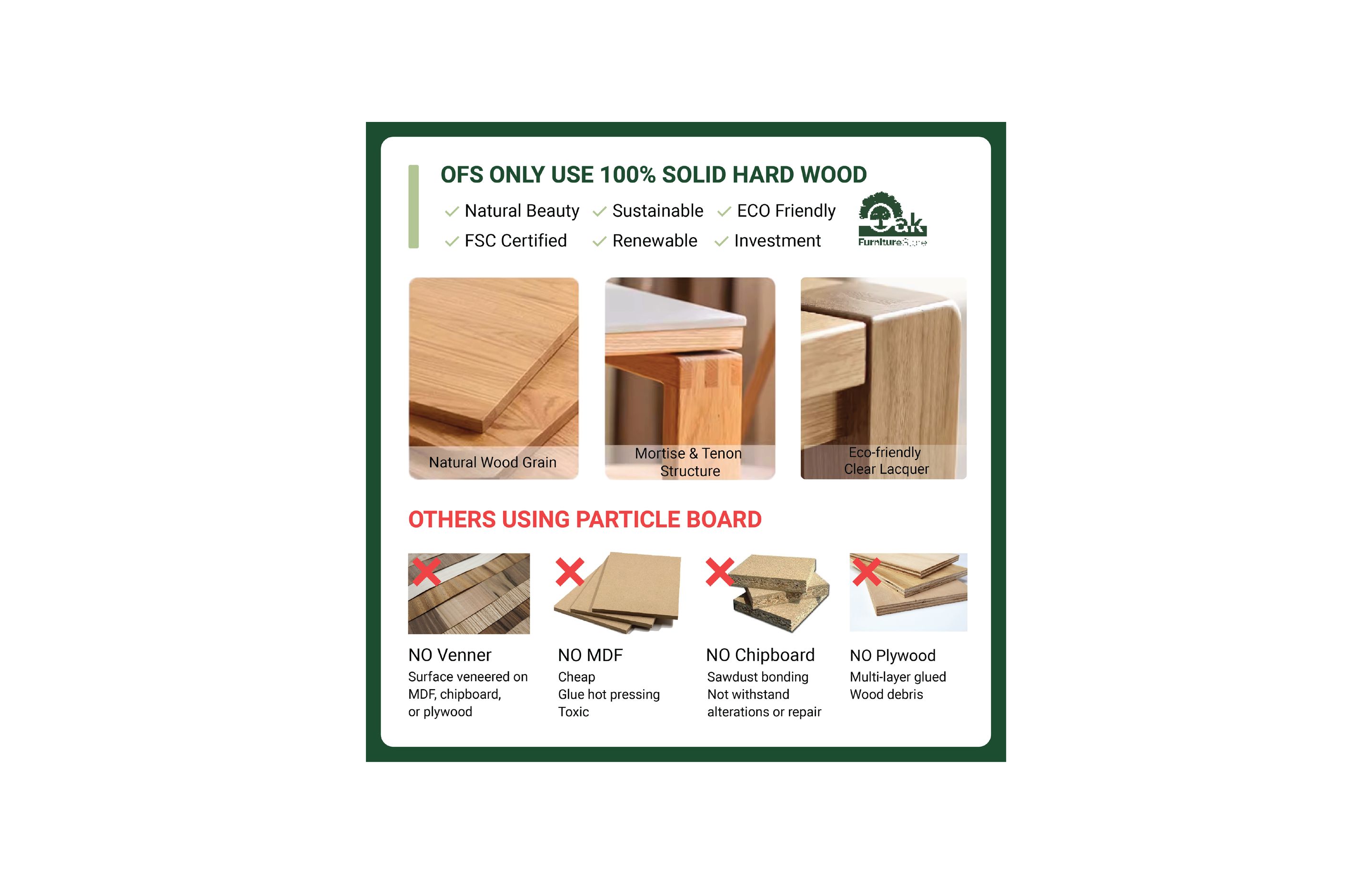In today's world, where environmental consciousness is more than a trend but a necessity, the choices we make in our homes reflect our values and our commitment to the planet. Furniture, a fundamental component of our living spaces, plays a significant role in these choices. The choice of materials, the manufacturing processes, and the lifecycle of furniture in NZ items directly impact the environment. Among the various materials available, solid wood emerges as a champion of eco-friendly living due to its natural origins, longevity, and minimal environmental footprint.
Solid wood, with its unique qualities, offers an opportunity to combine style, durability, and environmental stewardship. This introduction aims to shed light on why solid wood is an excellent choice for anyone looking to make their home both beautiful and environmentally responsible.
Benefits of Solid Wood
Solid wood is renowned not just for its aesthetic appeal but also for its robustness and longevity. Unlike other materials that might degrade or lose their visual appeal over time, solid wood maintains its structural integrity and beauty over many years. This durability means that solid wood furniture often becomes a one-time purchase, unlike items made from less durable materials that may need frequent replacements.
Moreover, solid wood's natural beauty allows it to stand out. Each piece of solid wood furniture is unique, with its grain patterns and textures, offering an organic beauty that cannot be replicated by synthetic materials. This uniqueness adds s personal touch to interiors, making each piece a statement of individual style and preference.
The ecological benefits of solid wood are significant. Being a natural material, it is completely biodegradable, which means it doesn't contribute to landfill issues at the end of its life. Additionally, wood is a carbon-neutral material. During its growth phase, a tree absorbs carbon dioxide from the atmosphere, and this carbon remains stored in the wood for the duration of its use, only being released back into the atmosphere as it decomposes or is burned.

Environmental Impact
The environmental impact of choosing solid wood furniture extends beyond its biodegradability or its role in carbon storage. Sustainable forestry practices ensure that for every tree cut down to make furniture, another is planted in its place, thus maintaining the balance of the ecosystem. These practices not only preserve the natural habitats but also ensure that the wood industry can be sustained without depleting natural resources.
Choosing solid wood furniture in NZ also supports industries that adhere to environmentally friendly practices. Many solid wood furniture manufacturers are committed to sustainable practices, including using non-toxic finishes and adhesives, which further reduces the furniture's environmental impact. By supporting these businesses, consumers contribute to a market that values ecological sustainability.
Furthermore, solid wood has a positive effect on indoor air quality compared to manufactured woods like MDF, which can emit formaldehyde, a known carcinogen. Solid wood furniture does not rely on such chemicals, making it a healthier choice for home environments.
Sustainability in Design & Crafting
Sustainability in furniture design is not just about the materials used but also about the design philosophy. Solid wood lends itself well to designs that are timeless, thereby transcending trends and reducing the need for frequent replacements. This approach to design not only conserves resources but also minimizes waste, contributing to a more sustainable consumption pattern.
Solid wood furniture is crafted using traditional Chinese mortise and tenon joinery and directly joined large wooden boards, avoiding the chemical bonding and heat compression steps in processed wood. This joining structure utilizes traditional mechanical principles instead of adhesives, enhancing the furniture's waterproof performance, stability, and ability to withstand repairs and modifications.
Responsible sourcing and the ethical treatment of workers in the manufacturing process are also critical components of sustainability. This includes ensuring that the wood comes from responsibly managed forests and that all people involved in the making of the furniture are treated fairly and work under safe conditions.
Risks of MDF
While MDF (Medium-Density Fiberboard) is popular due to its low cost and uniform texture, it poses several environmental risks that are often overlooked. The production of MDF involves high levels of energy consumption and uses resins and adhesives that contain formaldehyde, contributing to its potential to harm indoor air quality and pose health risks.
The environmental cost of MDF extends to its end of life. Unlike solid wood, MDF is not biodegradable and often ends up in landfills where it contributes to methane emissions, a potent greenhouse gas. The lack of biodegradability of MDF contrasts sharply with solid wood, which can be recycled or safely decomposed.
Making the Sustainable Choice
Choosing solid wood furniture in NZ is more than a matter of aesthetic preference—it's a commitment to sustainability and environmental responsibility. As consumers become more aware of the impacts of their purchasing decisions, the choice of solid wood becomes a statement of their values and their desire to support practices that do not harm the planet.
We encourage our readers to consider the long-term benefits of choosing solid wood furniture. Not only will it enhance the beauty of your home, but it will also contribute to a healthier, more sustainable world. Let us make choices that our future generations will thank us for. Explore our range of solid wood furniture in NZ and make a difference in both your home and the environment.
